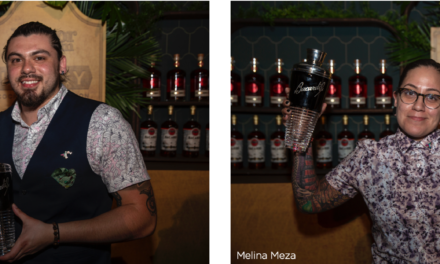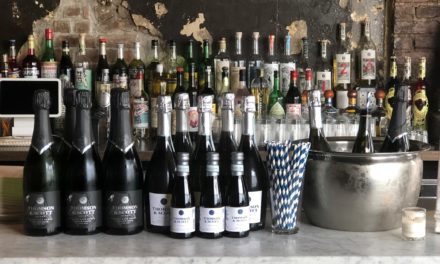Chances are, scrolling through the “explore” feature on your Instagram, a large percentage of follower suggestions are for social media influencers. That’s no coincidence. Influencers, individuals who partner with brands to create and share content, play an intrinsic role in building a brand’s reach and reputation. They can also have incredible power in elevating a company’s profile in any given marketing campaign. Partnering with influencers isn’t new, but it has become more prevalent in the beverage industry, particularly for lesser known artisan or craft brands, which are investing in influencers as part of a growth strategy.
Advertising up, sales declining
The spirits community has seen a particular uptick in influencer marketing. That’s because, while alcohol advertising spending has increased 400 percent in the last 40 years, U.S. alcohol consumption continues to decline, with volumes dropping by 0.8 percent in 2018. Even though sales are down, consumers are favoring premium-priced, artisan items, leading to higher revenues.
This discrepancy between ad dollars and sales revenue has left many alcohol brands struggling to connect with and convert customers. According to a new State of Influence beverage report (which provides insights into the online conversations for spirits, beer, and wine brands from more than 9,000 top food and beverage influencers), as social media becomes one of the primary channels for reaching consumers, brands are establishing powerful, effective, and compliant influencer programs.
Millennials are the future
Authenticity is critical for younger generations, which is why more traditional advertising hasn’t resonated as strongly with this group. Younger generations comprise 32 percent of U.S. spirits consumption by value. New craft spirits categories are gaining popularity, such as tequila, brandy, and whiskey (whiskey, in particular, is becoming a popular choice, expecially among women).
According to the State of Influence beverage report, gin and whiskey dominate social media influencer mentions and audience commentary, which demonstrates their impact on popularizing cocktail and spirits trends. As a result of partnering with brand ambassadors promoting their products, alcohol producers can generate tremendous growth and raise awareness with their target audience.
Rising cocktail culture is another factor that’s led millennials to favor spirits, with social media playing a key part in this behavior. Millennials are looking to “curate” their experience by showcasing trendy cocktails. It’s why you’ll often see users snapping pictures of their drinks, layering filters, and tagging the establishments where they’re drinking. Younger generations value the ingredients and appearance of their food and drinks, favoring ornate cocktails with Pinterest-inspired garnishes over traditional beer or wine.
Staying relevant
Millennials are the “curation generation.” They want to feel strong brand connections, and they thrive on sustainable, ethical, and artisan products. Younger generations favor unique experiences, and that drive extends to the variety of drinks they want at their local bar—they want a story and interesting ingredients. Savvy mixologists recognize this lends itself to one-of-a-kind cocktails that are postable on all social media platforms.

Pierre Loïc Assayag
It’s important to understand the power of social media influencer partnerships and how these individuals can cultivate a strong following to enhance a brand among millennials. Many of the latest trends are carefully planned by companies to ensure they stand out in a crowded market. As this market continues to become more saturated with new influencers and brands looking for new partnerships, diversifying your marketing strategy will help your product stand out.
Pierre- Loïc Assayag is the CEO and co-founder of Traackr, a platform that builds influencer relationship management technology, enabling brands to effectively manage, measure and scale influencer strategies, while cutting through the noise on social media.
Press releases are generated outside of Spirited magazine and the information contained does not necessarily reflect the opinion of Spirited or its parent company, Sonoma Media Investments.










